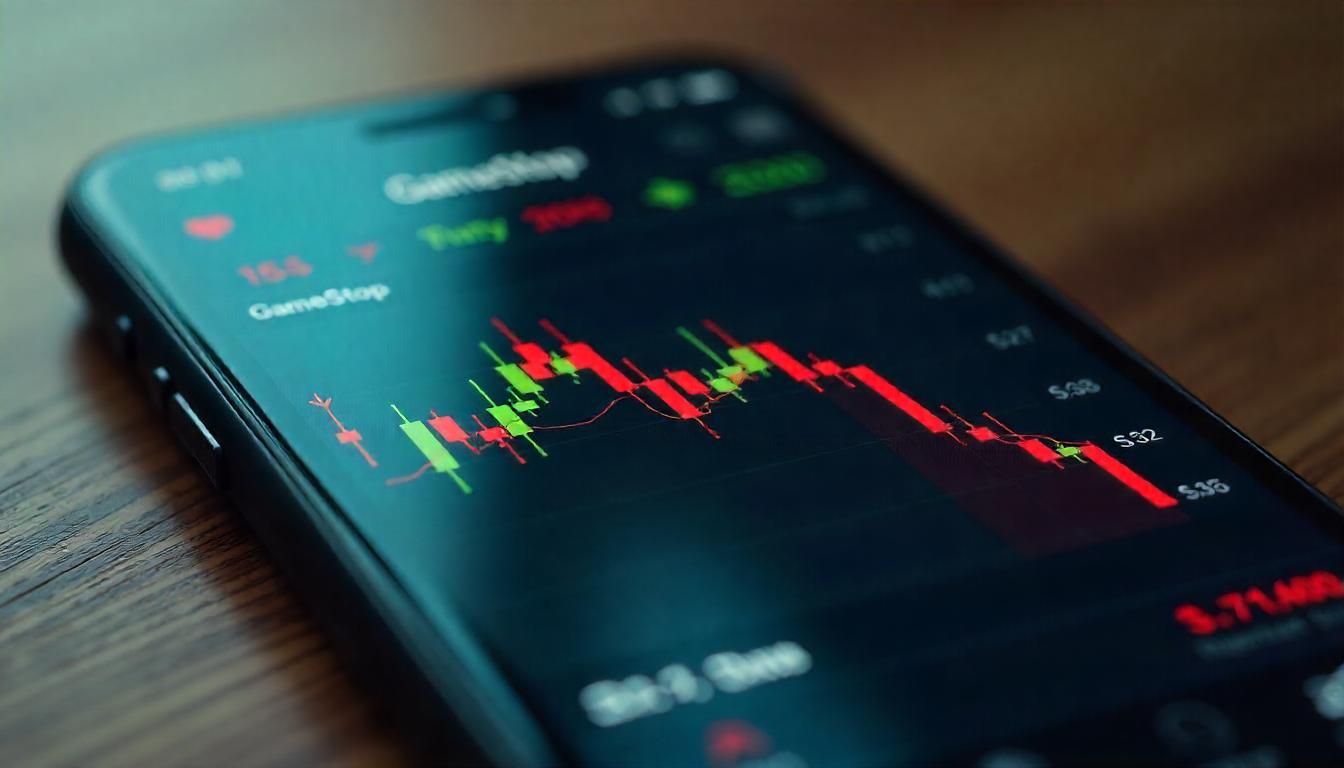GameStop Drops 25% as Bitcoin Convertible Bond Strategy Sparks Investor Concerns
GameStop Stock Sinks 25% After Bitcoin Convertible Bond Plan Announcement
GameStop’s steep sell-off appears tied to concerns over its convertible note pricing, with some investors interpreting it as a sign of skepticism toward the company’s Bitcoin acquisition strategy.
Shares of GameStop (GME) plunged 25% on Thursday, wiping out all gains made earlier in the week after the company announced plans to hold Bitcoin (BTC) as a treasury reserve asset.
GME’s price dropped to just above $21 during the session, marking its lowest level since October and a 28% decline from Wednesday’s peak of nearly $30.
The decline followed GameStop’s late Wednesday announcement of a $1.3 billion, 0% convertible note offering intended to raise funds for its Bitcoin purchase. While the initial reaction among crypto enthusiasts was positive, excitement faded as investors scrutinized the financial details.
“Existing shareholders are not happy with this decision, leading to a large-volume shift,” said Louis Liu, Chief Investment Officer of Mimesis Capital, in a post on X.
Another contributing factor to the stock’s drop could be the pricing period of the convertible bonds, during which potential buyers may be selling or shorting GME shares. James Van Straten, senior analyst at CoinDesk, pointed out that similar price movements occurred with MicroStrategy (MSTR) and Semler Scientific (SMLR) during their convertible note issuance periods.
Wedbush analyst Michael Pachter, who has an underperform rating on GME, predicted further price declines before the offering. “Convertible bond investors will be taking on a zero coupon while counting on the GameStop meme momentum to last another five years,” he said.
Pachter compared GameStop’s move to MicroStrategy’s Bitcoin strategy but noted key differences: MSTR trades at less than twice the value of its Bitcoin holdings, whereas GME is valued at more than twice its cash reserves.
“We don’t expect this offering to gain traction,” Pachter added. “It’s difficult to see why investors would pay such a high premium for GameStop’s Bitcoin plans when they could invest in BTC or a Bitcoin ETF directly.”
GameStop is the latest in a string of companies turning to Bitcoin as a reserve asset, a trend initiated by MicroStrategy under the leadership of Bitcoin advocate Michael Saylor. The move has gained momentum, particularly as U.S. President Donald Trump has promised to establish the U.S. as a leader in digital asset development.
While Saylor continues to encourage corporations—and even governments—to adopt Bitcoin as a reserve strategy, skepticism remains high.
“Speculating on companies buying Bitcoin is not an intelligent investment approach,” said Bitcoin critic Peter Schiff in a post on X. “GameStop has erased all of its Bitcoin-driven gains from yesterday and is now down 2% over the past two days. The hype traders have already jumped in, and smarter investors are selling, recognizing that pouring cash into Bitcoin is not a sustainable business model.”
Share this content:













